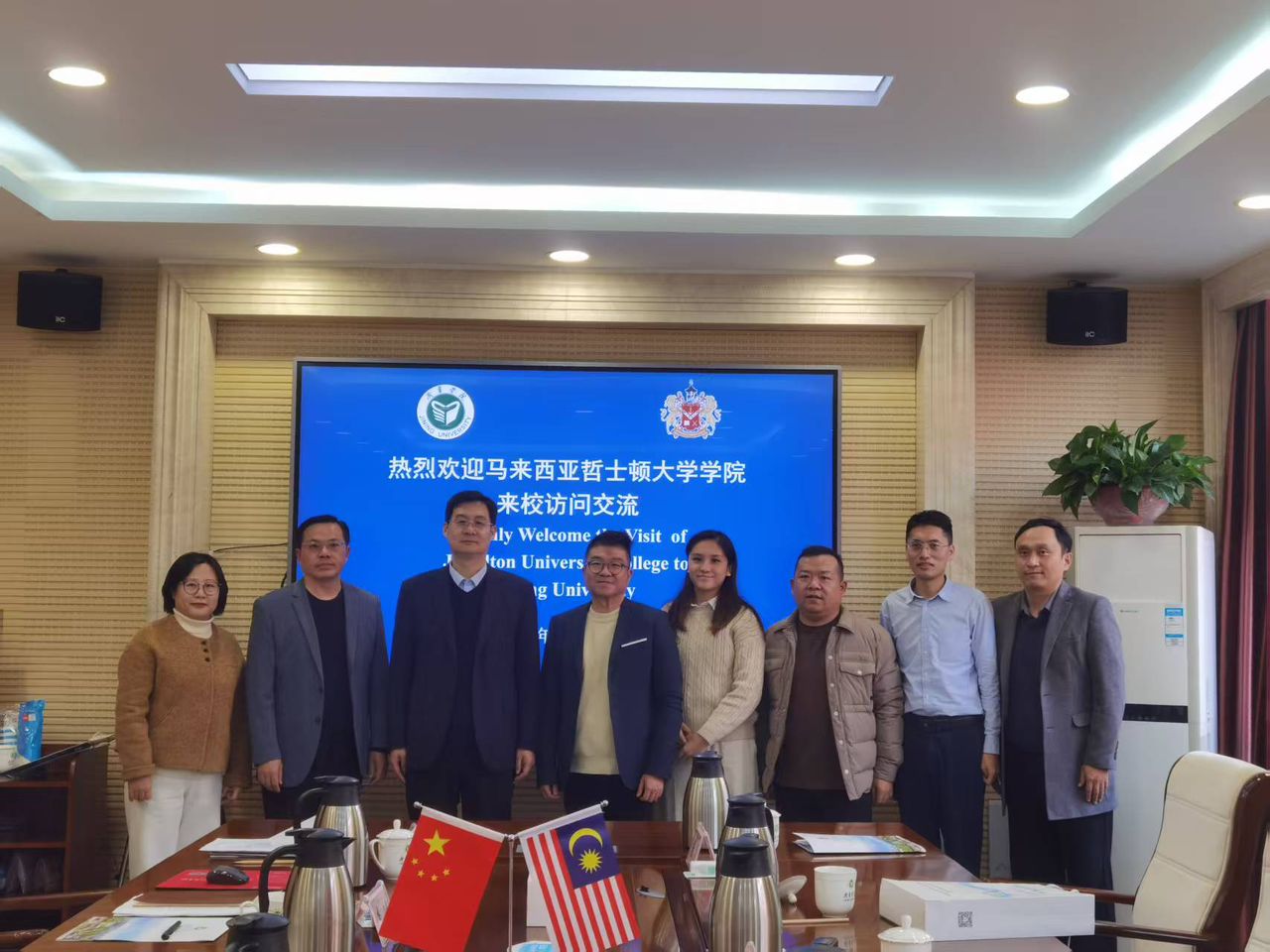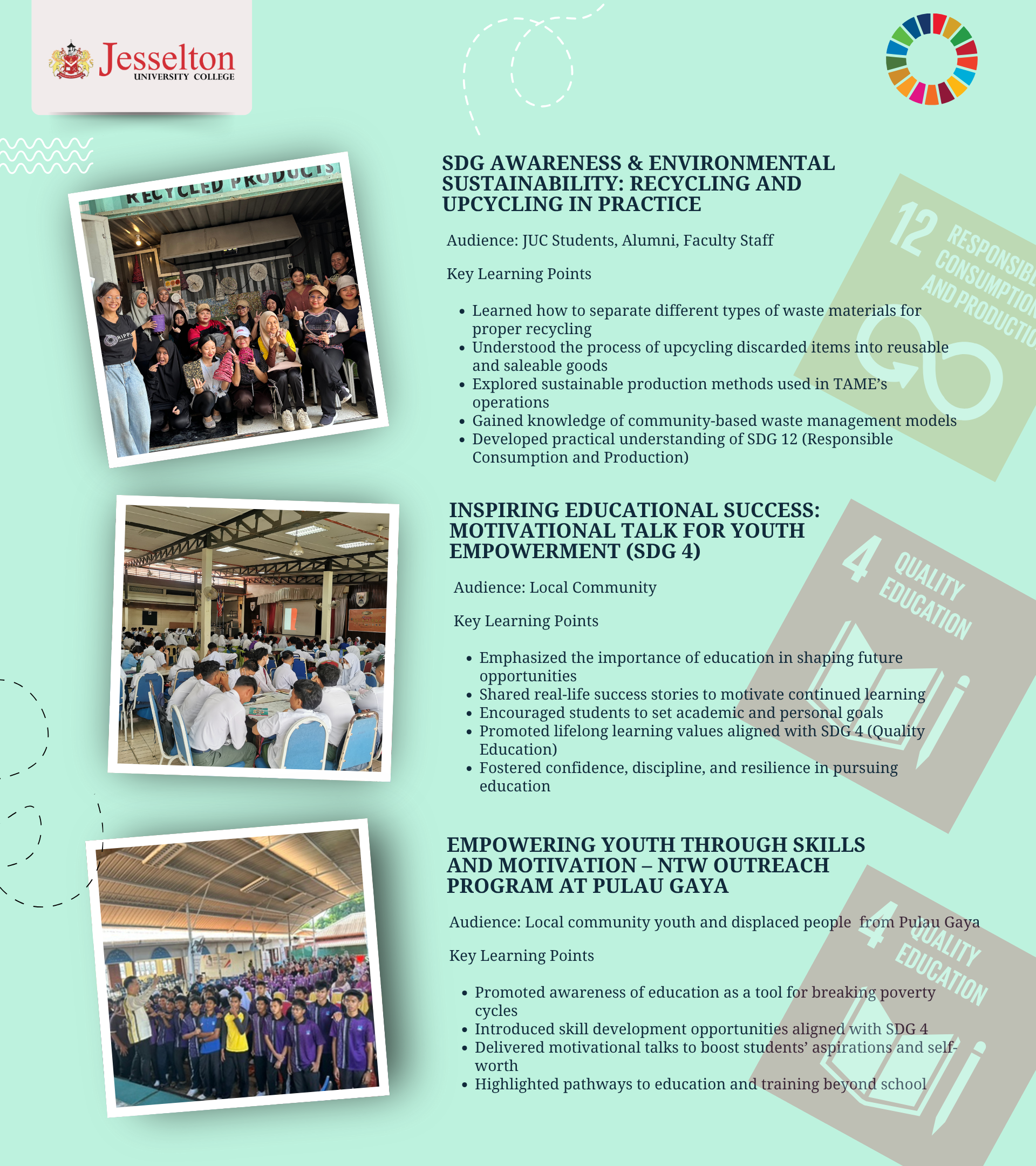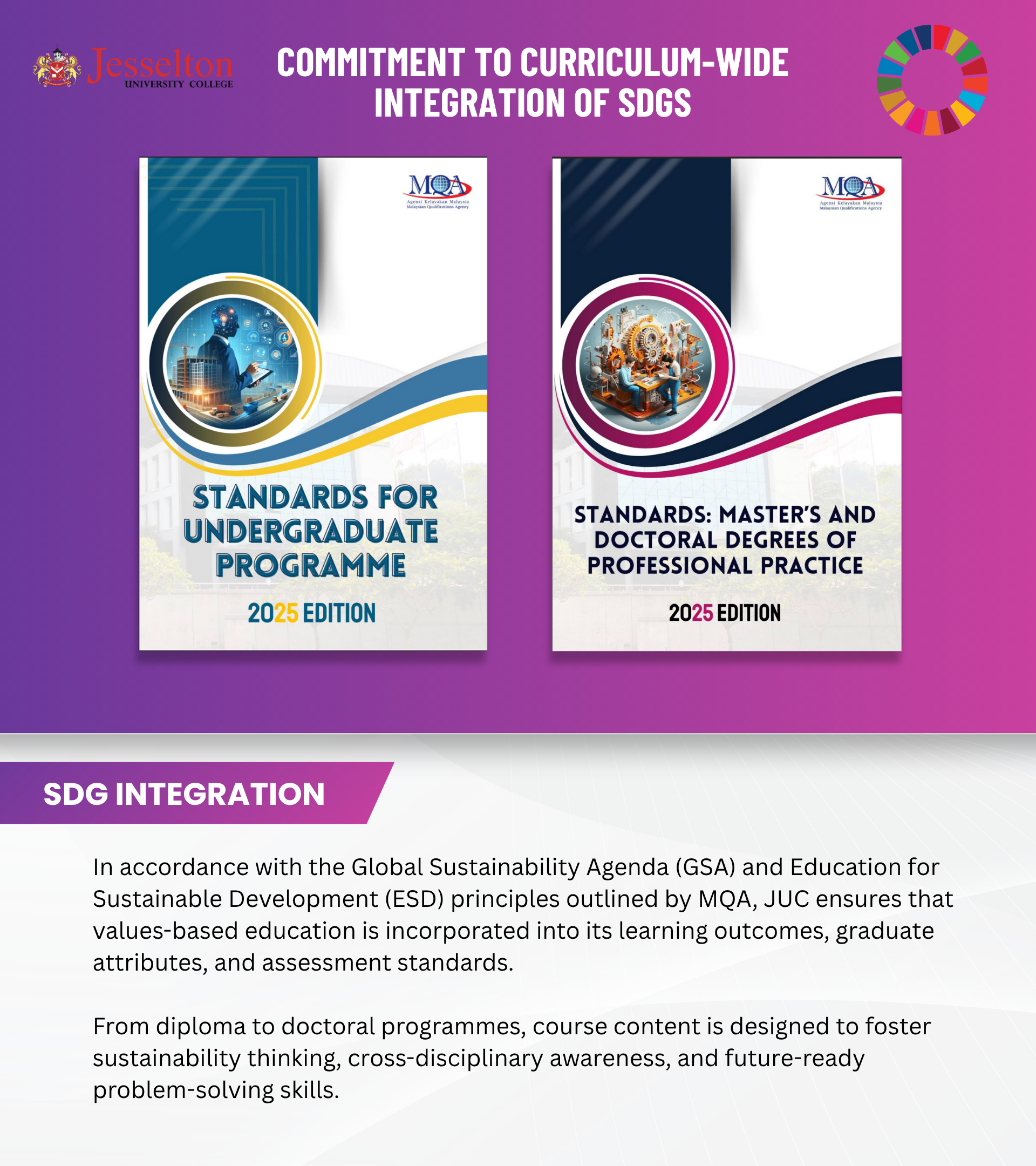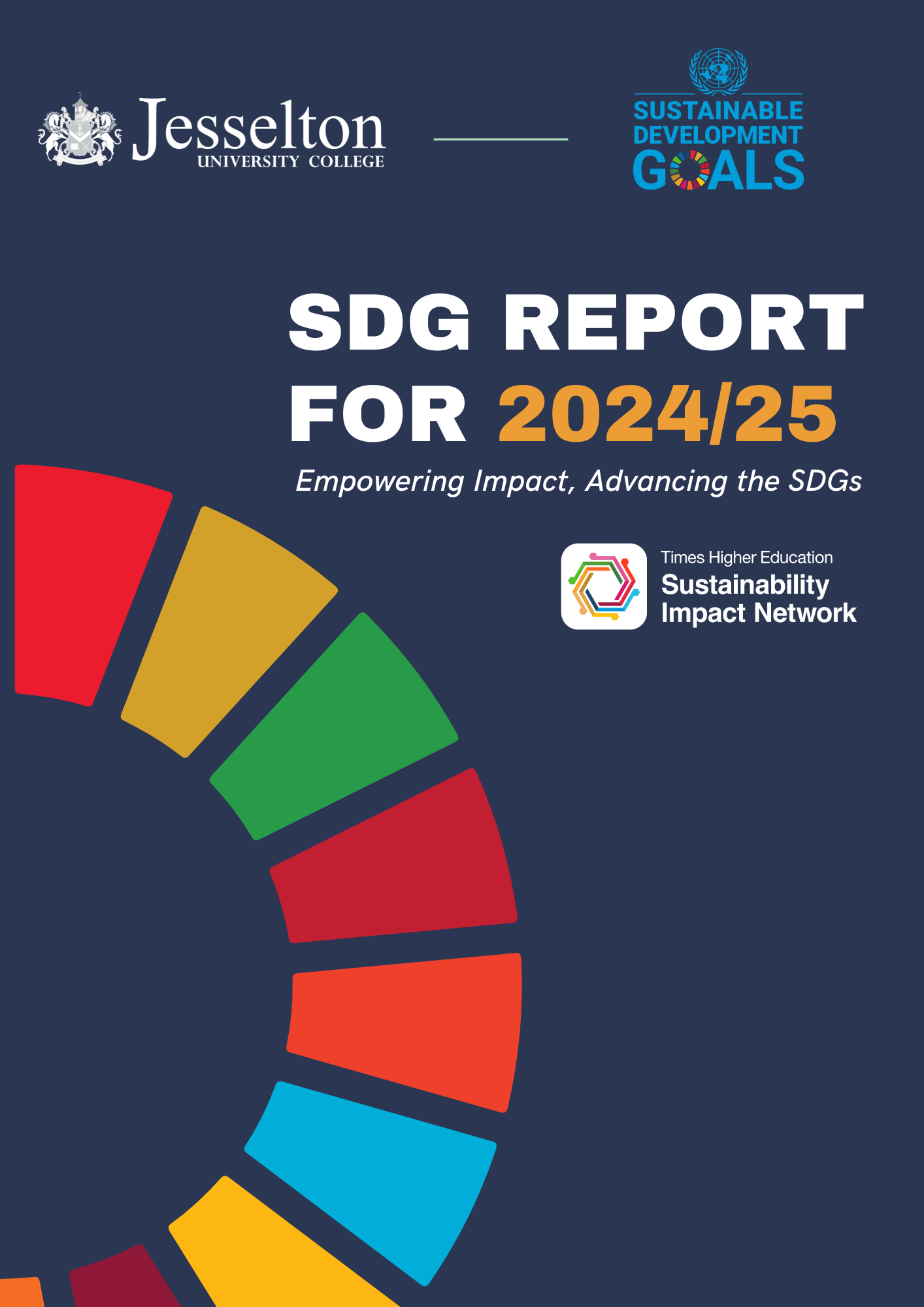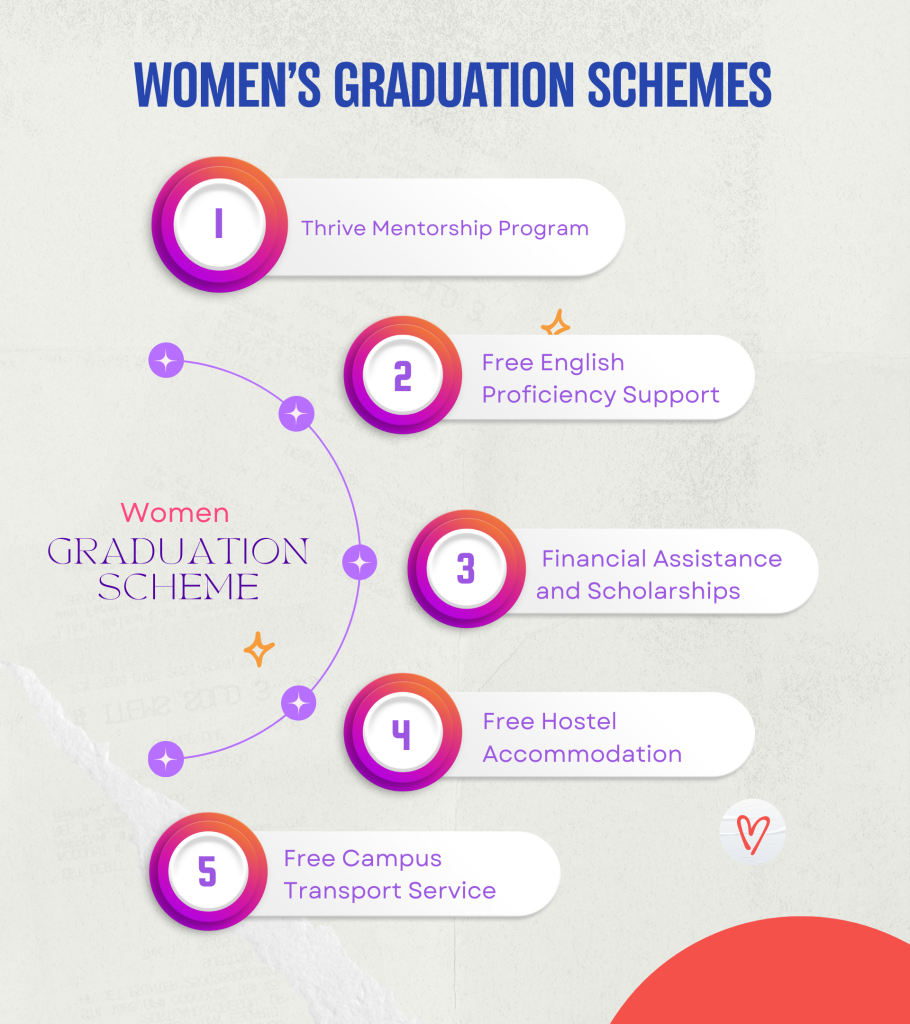
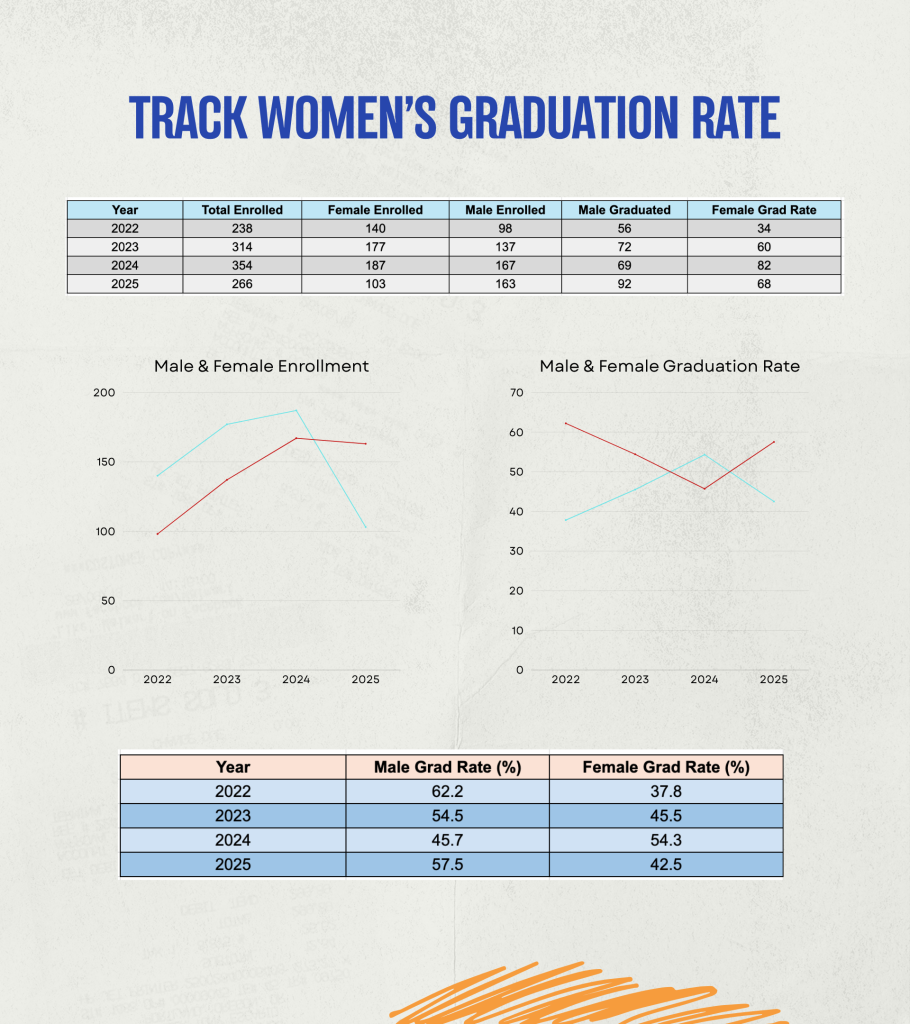
Jesselton University College (JUC) is committed to fostering gender equity through transparent data tracking and strategic support schemes aimed at improving academic outcomes for women. Since 2022, JUC has systematically measured graduation rates across male and female cohorts using gender-disaggregated data to monitor trends and inform decision-making.
Our internal tracking reveals notable year-on-year differences in graduation rates. For instance, in 2022, the female graduation rate was 37.8 percent, significantly lower than the male graduation rate of 62.2 percent. However, targeted interventions helped improve female graduation outcomes in 2024, with the rate rising to 54.3 percent, exceeding that of their male counterparts for that year. These statistics are visually represented in our published data charts, which show enrollment, graduation numbers, and rate comparisons across a four-year period from 2022 to 2025. This transparency reinforces our institutional accountability and helps identify areas where women may need further academic or structural support.
To bridge the gap and ensure no one is left behind, JUC has implemented several strategic initiatives under its Women’s Graduation Schemes. These include the Thrive Mentorship Program, designed to connect female students with mentors and role models who can guide their academic and career pathways. Free English Proficiency Support is offered to help students, particularly from rural or non-English-speaking backgrounds, enhance their classroom performance and confidence.
In addition, Financial Assistance and Scholarships target women from B40 and underserved communities to eliminate financial obstacles that may delay or prevent graduation. Free Hostel Accommodation and Campus Transport Services further ease logistical challenges for female students balancing study with caregiving, travel, or part-time work.
These comprehensive support structures reflect JUC’s broader commitment to the United Nations Sustainable Development Goals, particularly SDG 5 Gender Equality and SDG 4 Quality Education. All data and initiatives are made public through our official platforms to ensure transparency and promote best practices in gender-inclusive education.

